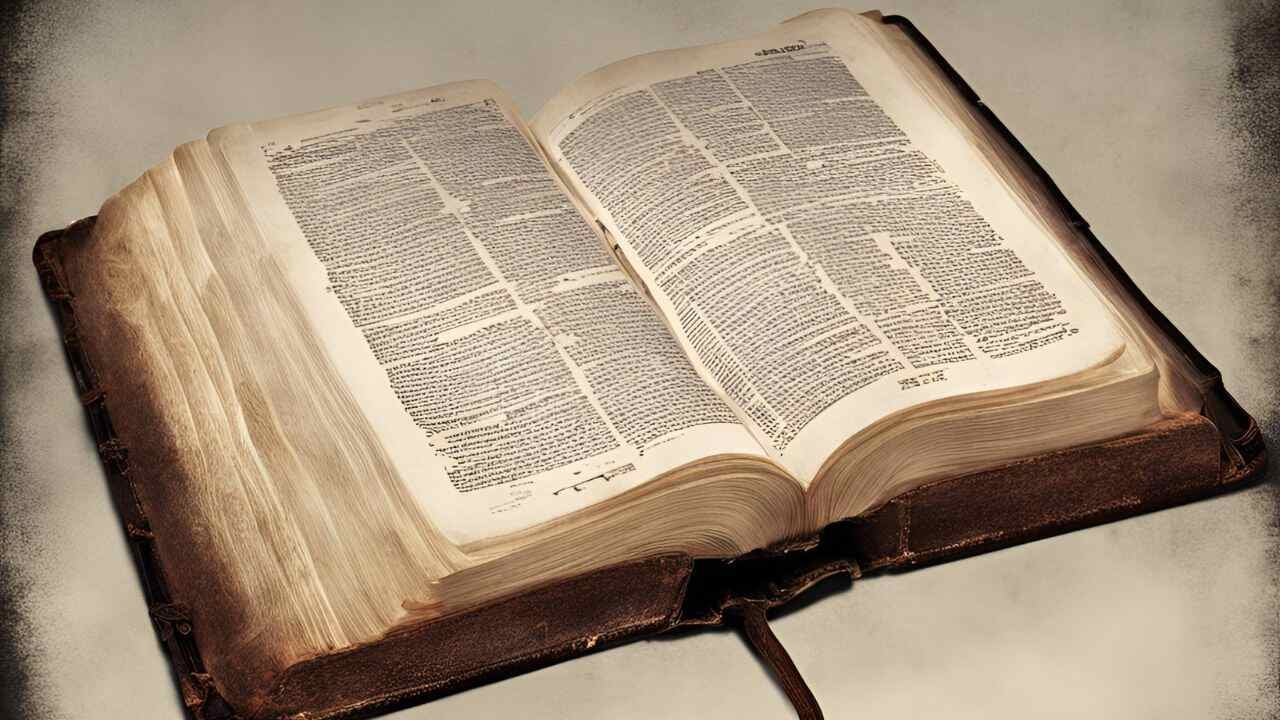The authorship of the Book of Genesis has been a topic of debate among biblical scholars for centuries. Traditionally, Moses has been credited as the author of this foundational text, which serves as the first book of the Torah and the Old Testament. Several passages within the Pentateuch, the first five books of the Bible, suggest that Moses played a significant role in their composition, with references to him writing down events and God’s words.
The New Testament authors, including Jesus himself, have also affirmed Mosaic authorship of the Pentateuch, including the Book of Genesis. However, there are certain passages in Genesis that describe events occurring after Moses’s lifetime, known as “postmosaica” passages, which challenge the idea of a single Mosaic author. As a result, scholars have grappled with the complex question of the Pentateuch’s composition and the extent of Moses’s involvement in the writing of Genesis.
Key Takeaways
- Moses is traditionally considered the author of the Book of Genesis, but his authorship has been debated by biblical scholars.
- References within the Pentateuch suggest Moses’s involvement in the composition of these books, including writing down events and God’s words.
- The New Testament also affirms Mosaic authorship of the Pentateuch, including Genesis.
- However, certain passages in Genesis describe events after Moses’s death, challenging the idea of a single Mosaic author.
- Scholars have varying views on the composition of the Pentateuch and the extent of Moses’s role in writing Genesis.
Traditional Attribution: Moses as the Author
The Pentateuch, which includes the book of Genesis, is traditionally attributed to Moses as the author. This belief is based on several passages within the Pentateuch that suggest Moses’ direct involvement in the composition of these sacred texts.
References to Moses Writing in the Pentateuch
The Pentateuch itself contains multiple references to Moses writing down events and God’s words. For instance, Exodus 17:14 records Moses writing at the command of God, while Exodus 24:3-4 describes Moses writing down the “words of the Lord.” These passages indicate that Moses played a significant role in the authorship of the Pentateuch.
New Testament Affirmation of Mosaic Authorship
The New Testament also appears to support the view of Moses as the author of the Pentateuch. Various passages in the New Testament quote from the Pentateuch and attribute these writings to Moses. For example, in the Gospel of John, Jesus refers to “the Law of Moses” (John 7:23), suggesting a belief in the Mosaic authorship of the Pentateuch, including the book of Genesis.
The traditional attribution of the Pentateuch, and specifically the book of Genesis, to Moses as the author has been a longstanding belief within Judeo-Christian traditions. The references to Moses’ involvement in the writing process, as well as the affirmation of his authorship in the New Testament, have contributed to this understanding of the Mosaic authorship of the Torah and the Pentateuch.
Challenges to Mosaic Authorship
While the traditional view attributes the Pentateuch, including the Book of Genesis, to Moses, there are various challenges to this idea. One of the key issues is the presence of certain passages, known as postmosaica, which describe events that occurred after Moses’s lifetime, suggesting that the text was not entirely written by him.
Postmosaica Passages
For example, the reference to “Ur of the Chaldeans” in Genesis 11:31 is considered a postmosaica, as the Chaldeans were a people who lived long after Moses. Similarly, the mention of the city of Dan in Genesis 14:14 is also seen as a postmosaica, as this city was not named until the time of the Judges.
These postmosaica passages indicate that later editors or redactors made additions to the biblical composition over time, challenging the traditional view of Mosaic authorship. The presence of these passages suggests that the Book of Genesis, and perhaps the entire Pentateuch, may have been the result of a more complex and collaborative process of biblical composition than previously believed.
“The presence of postmosaica passages in the Book of Genesis challenges the traditional attribution of the Pentateuch to Moses.”
While the Mosaic authorship remains a widely held belief, the challenges to Mosaic authorship presented by the postmosaica passages have led many scholars to re-examine the origins and development of the biblical composition.
Scholarly Views on Composition
Scholars have long debated the authorship and composition of the book of Genesis, as well as the Pentateuch as a whole. The traditional view of Mosaic authorship has been challenged by many biblical composition experts, who argue that the Pentateuch authorship was the result of a complex, multi-layered process spanning centuries.
The documentary hypothesis, which was widely accepted in the 19th and early 20th centuries, proposed that the Pentateuch came from four main scholarly views on Genesis: the Yahwist (J), the Elohist (E), the Deuteronomist (D), and the Priestly source (P). These sources were later combined by editors to create the final text we have today.
More recent theories, such as the new supplementary hypothesis, suggest a smaller number of main sources, with the E source being a variation of J and the Deuteronomistic source not appearing in Genesis. These scholarly views on Genesis reflect the ongoing debate and evolution of ideas within the field of biblical composition research.
“The question of the authorship of the Pentateuch is one of the most complex and debated issues in biblical studies.”
As scholars continue to explore the complex process of Pentateuch authorship, our understanding of the origins and composition of the book of Genesis continues to evolve. This dynamic field of study highlights the richness and depth of the scholarly views on Genesis and the ongoing pursuit of knowledge in this realm.
Documentary Hypothesis and Source Criticism
The documentary hypothesis, a dominant scholarly view for over a century, proposed that the Pentateuch was composed of four main sources: the Yahwist (J), the Elohist (E), the Deuteronomist (D), and the Priestly source (P). This theory of source criticism has significantly influenced our understanding of the origins and development of the Biblical text.
Yahwist (J) Source
According to the documentary hypothesis, the Yahwist (J) source used the name Yahweh for God and was composed in the 9th century BC in the southern Kingdom of Judah. This source is characterized by its vivid storytelling and anthropomorphic depiction of the divine.
Elohist (E) Source
The Elohist (E) source, which used the name Elohim for God, was believed to have been written in the 8th century BC in the northern Kingdom of Israel. This source is known for its emphasis on divine providence and its more distant portrayal of the divine-human relationship.
Deuteronomist (D) Source
The Deuteronomist (D) source is associated with the religious reforms of King Josiah in the 7th century BC. This source is characterized by its focus on covenant theology and its call for centralized worship in Jerusalem.
Priestly (P) Source
The Priestly (P) source was written during the 5th century BC in Babylon, according to the documentary hypothesis. This source is known for its emphasis on ritual, law, and the establishment of the priesthood.
These four sources were later combined by editors to form the final Pentateuch, a process that has been the subject of extensive source criticism and debate among scholars.

“The documentary hypothesis has been the dominant scholarly view on the composition of the Pentateuch for over a century, but its validity has been the subject of ongoing debate and refinement.”
Who is considered the author of the Book of Genesis?
The authorship of the Book of Genesis has long been a subject of debate among biblical scholars. The traditional view holds that Moses, the revered prophet and lawgiver, is the primary author of this foundational text. However, the presence of certain postmosaica passages, which describe events after Moses’s death, suggests that the book may have undergone additional editorial changes and contributions over time.
While the Mosaic authorship of the Pentateuch (the first five books of the Bible, including Genesis) has been widely accepted, the complex nature of the biblical composition has led scholars to propose various theories on the book’s origins. The documentary hypothesis, for example, suggests that Genesis was written by multiple authors over an extended period, with the final form emerging after the Babylonian Exile.
Despite these scholarly debates, the evidence points to Moses playing a significant role in the origins of the Pentateuch, even if he did not write every word himself. The Author of the Book of Genesis remains a topic of ongoing discussion and research, with scholars continuing to explore the nuances of this ancient and influential work.
“The question of the authorship of the Pentateuch has been a subject of intense scholarly debate for centuries, with the traditional view of Mosaic authorship challenged by more recent theories on the book’s composition.”
As the debate over the authorship of the Book of Genesis continues, scholars and readers alike are invited to explore the rich tapestry of this foundational text, its enduring influence, and the evolving perspectives on its origins.
Theories on Genesis’ Purpose and Context
While the authorship and composition of the Book of Genesis have long been debated, scholars have also explored various theories about its purpose and the context in which it was written. One intriguing hypothesis that has gained traction in recent years is the idea of Persian imperial authorization for the composition of the Pentateuch, including the book of Genesis.
This theory suggests that after the Persians conquered Babylon in 539 BC, they granted a measure of local autonomy to Jerusalem. However, the Persians also required the local authorities to produce a single law code that could be accepted by the entire Jewish community. This provided an incentive for the priestly families and landowning families, who likely had their own “histories of origins,” to cooperate in producing a unified text that could be accepted by all.
Persian Imperial Authorization Hypothesis
The emphasis in the Book of Genesis on the covenants and promises made to the patriarchs may have been part of this effort to establish a shared foundation for the Jewish community. By weaving together these stories of the past, the authors of Genesis could have aimed to create a sense of collective identity and purpose, as well as a framework for the community’s relationship with the divine.
This Persian imperial authorization hypothesis suggests that the composition of the Theories on Genesis and its purpose of Genesis may have been shaped by the political and social context of the time, as the Jewish community sought to navigate its relationship with the powerful Persian empire. The Persian imperial authorization of the text could have been a strategic move to unify the community and establish a shared understanding of its origins and destiny.
“The emphasis in Genesis on the covenants and promises made to the patriarchs may have been part of this effort to establish a shared foundation for the Jewish community.”
While the specifics of this hypothesis are still debated, it highlights the importance of considering the broader historical and political context when studying the purpose and significance of the Book of Genesis. By understanding the potential influences and motivations behind its composition, we can gain deeper insights into the role this foundational text has played in shaping the Jewish faith and identity over the centuries.
Conclusion
The authorship of the Book of Genesis has long been a subject of extensive debate and scholarly investigation. While the traditional view attributes the book to the revered figure of Moses, the presence of postmosaica passages and the diverse theories on the Pentateuch’s composition suggest a more complex and nuanced understanding of its origins.
Ultimately, the evidence points to Moses playing a significant role in the foundations of the Pentateuch, even if he did not physically pen every word. The Book of Genesis serves as an essential cornerstone, laying the groundwork for the covenants and promises made to the patriarchs, which are central to the rich tapestry of Jewish and Christian theology and history.
As scholars continue to explore the authorship and composition of this seminal work, one thing remains clear: the Book of Genesis endures as a profound and enduring testament to the divine hand guiding the story of humankind. Its legacy continues to shape and inspire the faithful, offering a timeless wisdom that transcends the boundaries of time and tradition.
FAQ
Who is considered the author of the Book of Genesis?
Moses is traditionally considered the author of the Book of Genesis, but the authorship of the book has been a contested question in biblical scholarship for over two centuries.
What is the traditional view on the authorship of the Pentateuch, including the Book of Genesis?
The Pentateuch, including the Book of Genesis, is traditionally attributed to Moses as the author. Several passages in the Pentateuch mention Moses writing down events and God’s words, suggesting his involvement in the composition.
What are the challenges to the traditional view of Mosaic authorship?
Certain passages in Genesis, known as postmosaica, describe events that happened after Moses’s death, suggesting the book was not entirely written by him. This indicates that later editors or redactors made additions to the text.
What are the scholarly views on the composition of the Pentateuch?
Scholars have proposed various theories on the composition of the Pentateuch, including the documentary hypothesis, which suggests the Pentateuch was composed by multiple authors over a long period of time.
What is the documentary hypothesis and how does it explain the authorship of the Pentateuch?
The documentary hypothesis proposes that the Pentateuch was composed of four main sources: the Yahwist (J), the Elohist (E), the Deuteronomist (D), and the Priestly source (P), which were later combined by editors to form the final Pentateuch.
What is the recent theory on the purpose and context of the Book of Genesis?
The Persian imperial authorization hypothesis suggests that the Pentateuch, including the Book of Genesis, may have been composed under the authorization of the Persian Empire after the conquest of Babylon in 539 BC, as part of an effort to establish a shared foundation for the Jewish community.








